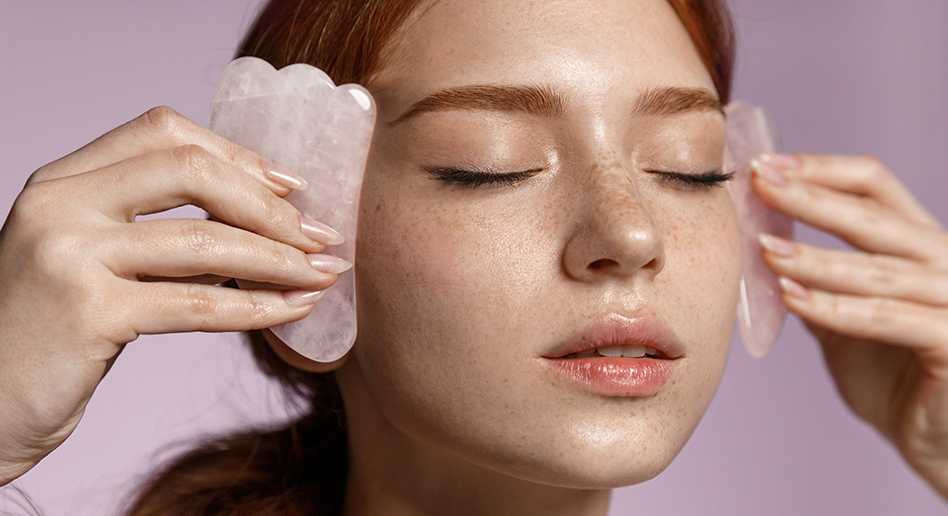5TH FEB 2025
10 Most Asked Skincare Questions.

Skinsights > 10 Most Asked Skincare Questions.
We Answer Your 10 Most Asked Skincare Questions.
- The world of skincare is full of questions – some we’ve all Googled at 2am (never a good idea), some we’re too afraid to ask, and others that, well, we absolutely should be asking. From spotting skincare myths to decoding the difference between retinol and tretinoin, we’re here to break it all down with no-nonsense, science-backed answers. Let’s get into it.
1. Do I really need a skincare routine, or is face wash enough?
- The short answer? No, face wash alone won’t cut it (unless you’re genetically blessed and/or have recently been granted three wishes, one of which you used on your skin). Your skin faces pollution, UV rays, and environmental stress daily – especially in the Middle Eastern climate – so a proper routine helps keep it healthy, hydrated, and looking great. A solid routine includes cleansing, moisturising, sun protection and, of course, a personalised, prescription night cream that treats your skin against those external factors.
2. What’s the biggest skincare myth that’s still fooling people?
- One of the worst? You can shrink your pores. Nope! Pores aren’t doors – they don’t open or close. You can make them look smaller with retinoids, but their size is largely genetic. Another myth? “Natural skincare is always better.” Nope again. Science-backed ingredients (such the ones in ilik) are tested for efficacy and safety, unlike some of the TikTok-inspired DIY disasters.
3. How do I know if a skincare product is actually working?
- Good question. Skincare is a slow game – active ingredients, such as niacinamide or retinoids, need at least four to 12 weeks to show results, so consistency and a little patience is key. Good things come to those who wait!
4. Is expensive skincare actually better, or am I just paying for the brand name and packaging?
- We all love a fancy name on our shelves, and, hey, sure, it looks cool. But it’s about what’s inside the box that counts – not the marketing hype. What really matters is ingredient concentration, formulation, and effectiveness – not the name or the price tag.
5. Prescription skincare vs over the counter: what’s the real difference?
- The short version: strength, concentration, and effectiveness. Prescription skincare (such as tretinoin or custom-blended treatments from ilik) contains higher percentages of actives, designed for real results – more than 20 times more powerful than over-the-counter products. Over the over-the-counter products can be gentler but take much longer to work and are far less effective – and, of course, aren’t OTC products aren’t prescribed. Prescription products are prescribed (the clue’s in the name) by a dermatologist – giving you exactly that ingredients that’s needed for you.
Ready to level up your skincare?
It's time to get your clinically proven formula that's made just for you.
GET YOUR CUSTOM CREAM6. What’s the ONE skincare step no one should skip?
- Sunscreen. If you’re not protecting your skin from UV damage, you’re undoing all your other skincare efforts. SPF is not optional – it’s essential.
7. How long does it take to see results from skincare?
- It depends on the ingredients. Hydration from a moisturiser? Immediate. Acne Treatment? Eight to 12 weeks. Hyperpigmentation treatments? Not less than 12 weeks. Skincare is a marathon, not a sprint – again, consistency is key.
8. Is tretinoin better for acne or anti-ageing?
- Both. Tretinoin speeds up cell turnover, helping clear acne while boosting collagen to smooth wrinkles and fine lines.
9. Retinol vs. tretinoin: what’s the difference?
- Retinol is weaker and needs to be converted by your skin into retinoic acid (the active form). Tretinoin (a prescription form) is already in its active state – meaning it works faster and delivers stronger results for acne, ageing, and hyperpigmentation.
10. Does tretinoin thin your skin?
- Nope! It actually does the opposite – it thickens the dermis (the deep layer of your skin), making it firmer and more resilient over time.
Final thoughts
- Navigating skincare can feel overwhelming, but the key is understanding what works and why. Whether you’re choosing between retinol and tretinoin, looking for real results, or trying to separate fact from fiction – science-backed skincare (such as ilik) makes all the difference. Got more questions? We’ve got answers – just ask.

